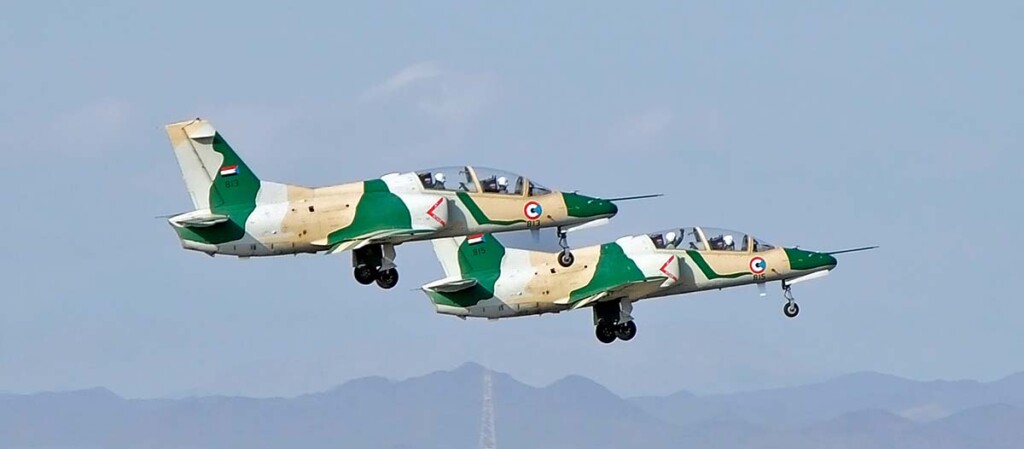20 dead, 23 injured in Khartoum air raid

Sudanese Air Force Hongdu JL-8 E jets (File photo: Eduard Onyshchenko / GNU FDU)
Airstrikes in El Kalakla El Gubba in southwest Khartoum on Saturday killed 20 civilians including two children, 23 others were injured. Artillery shelling in the area continued into Sunday.
The Kalaklat and Southern Khartoum Emergency Room say that the Turkish hospital received 11 dead, including two children and a woman, and indicated that others were killed as a result of bombardments by the Sudanese Air Force. Their bodies could not be taken to the hospital “due to their severely damaged state”.
Spokesperson for the Khartoum Southern Belt Emergency Room Mohamed Kindsha told Radio Dabanga that “three civilians, including a woman and a girl, were killed and 10 others were seriously injured as a result of airstrikes near El Razi Street, on Saturday.”
He pointed out that a fourth fatal casualty arrived at El Razi Hospital on Saturday evening.
Two shells fell in the El Azhari neighbourhood on Saturday evening, resulting in three injuries, one of which required urgent hospital treatment.
Residents said that the shelling continued on Sunday morning, with parts of the Andalus neighbourhood, located near the armoured corps witnessing artillery shelling.
Clashes
The violence followed clashes between the Sudanese Armed Forces (SAF) and the Rapid Support Forces (RSF) on Wednesday and Thursday, as the army shelled various RSF targets throughout Khartoum state.
A listener told Radio Dabanga from Khartoum North (Khartoum Bahri) that the SAF shelled areas in Sharg El Nil (EAST Nile) on Wednesday. Several missiles fell inside residential neighbourhoods. One person was fatally hit by a shell and two others were wounded.
The resistance committees of Khartoum North El Khojalab accused the RSF of attacking residents of the neighbourhood. Two people were killed and three others injured.
SAF spokesperson Brig Nabil Abdallah accused the RSF of attacking people in Ombadda in Omdurman and Suleimaniya in Jebel Aulia in southern Khartoum on Wednesday.








 and then
and then